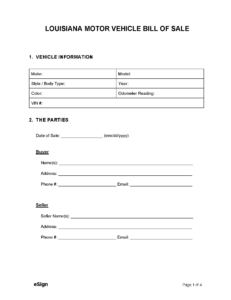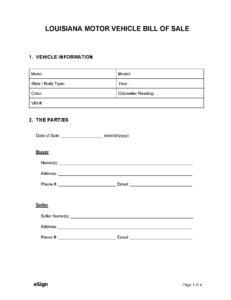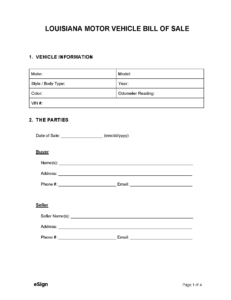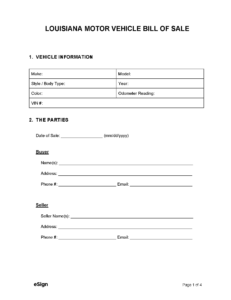When you are buying or selling personal property, whether it is a vehicle, a boat, or even a valuable piece of furniture, having a clear and legally sound document is incredibly important. This document, known as a bill of sale, acts as a receipt and a record of the transaction, protecting both the buyer and the seller. It’s not just a formality; it’s a crucial step that can prevent misunderstandings and legal issues down the road.
For residents of the Pelican State, understanding the specifics of how these transactions are handled in Louisiana is key. While the general purpose of a bill of sale remains universal, Louisiana’s unique civil law system, which differs from the common law system in most other U.S. states, often means there are particular nuances to consider. This article will guide you through what you need to know to ensure your transactions are smooth and legally compliant within the state.
What Makes a Louisiana Bill of Sale Unique?
Louisiana’s legal system, based on Napoleonic Code rather than English common law, sometimes introduces distinctions that are important when dealing with legal documents like a bill of sale. While a basic bill of sale often serves as proof of ownership transfer, certain types of property, particularly vehicles, might have specific requirements outlined by the Louisiana Office of Motor Vehicles (OMV). For instance, when transferring a vehicle, the OMV has its own forms and procedures that complement or sometimes supersede a generic bill of sale. It is always wise to consult their guidelines for motor vehicles.
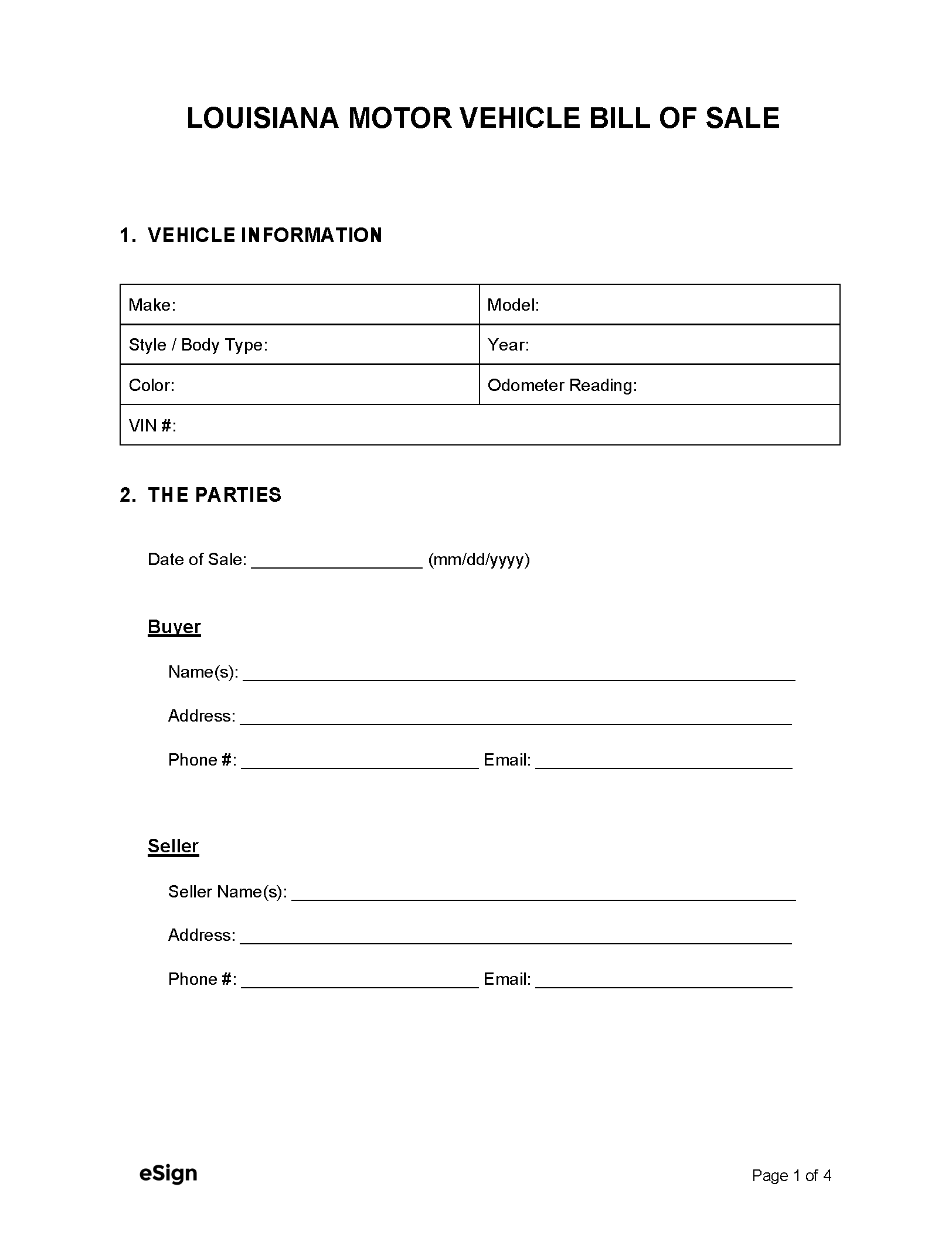
Beyond vehicles, for other personal property, a well-drafted bill of sale acts as your primary record. It clearly states the buyer, seller, item being sold, the purchase price, and the date of the transaction. This written evidence can be invaluable in case of future disputes, proving who owned what and when. Although a notary public isn’t always required for a standard personal property bill of sale, their presence can add an extra layer of authenticity and legal weight, especially for high-value items, by verifying the identities of the signing parties.
Key Information to Include
To ensure your bill of sale is comprehensive and effective, it should contain several vital pieces of information. Skipping any of these details could potentially weaken the document’s legal standing or create ambiguity for future reference. Always double-check that every relevant field is filled out accurately and completely.
- Date of Sale: The exact date the transaction took place.
- Seller’s Information: Full legal name, address, and contact details.
- Buyer’s Information: Full legal name, address, and contact details.
- Item Description: A detailed description of the property being sold. For vehicles, this includes make, model, year, VIN, and odometer reading. For other items, be as specific as possible to avoid confusion.
- Purchase Price: The agreed-upon amount of money paid for the item.
- Payment Method: How the payment was made (cash, check, money order, etc.).
- As-Is Clause (if applicable): A statement indicating the item is sold “as is,” meaning the buyer accepts it with all existing faults, without any warranties from the seller. This is very common for private sales.
- Signatures: Both the buyer’s and seller’s signatures.
- Witnesses (optional but recommended): Signatures of one or more witnesses, especially for high-value items.
Having all of these elements clearly articulated within the document strengthens its validity. Even for seemingly simple transactions, a thorough bill of sale offers peace of mind for both parties involved. It’s about clarity and protection, ensuring that everyone is on the same page regarding the terms of the sale.
How to Use and Obtain Your Bill of Sale Template Louisiana
Finding and properly utilizing a bill of sale template Louisiana is a straightforward process that offers significant legal safeguards. Numerous online resources provide free, customizable templates designed to meet general requirements. These templates are an excellent starting point, allowing you to fill in the specific details of your transaction without having to draft the document from scratch. Once you have a template, carefully review each section to ensure it aligns with the specifics of your sale.
Before signing, both the buyer and seller should read the entire document thoroughly. Make sure all names are spelled correctly, addresses are accurate, and the description of the property is precise. It’s also crucial that the agreed-upon price is clearly stated. Any modifications or special conditions should be written directly into the document or attached as an addendum, signed and dated by both parties. This ensures that every aspect of the agreement is formally recorded and acknowledged.
After the document is completed and signed, make sure both the buyer and seller receive a copy. While the original can be kept by either party, having a duplicate for each individual involved is a standard best practice. For vehicles, boats, or other items that require registration with a state agency, the bill of sale will often be a required document to complete the transfer of ownership or title. Always check with the relevant Louisiana state department for their specific submission requirements.
Using a well-structured bill of sale is not just about fulfilling a legal requirement; it’s about establishing clear communication and protecting yourself from potential future disagreements. It acts as a definitive record, solidifying the terms of the exchange and providing peace of mind for everyone involved. Whether you are selling a used bicycle or a piece of heavy equipment, taking the time to complete a proper bill of sale is a small effort that yields significant security.
Ultimately, whether you are buying or selling within Louisiana, utilizing a properly prepared bill of sale is a smart and responsible practice. It offers a clear, undeniable record of transfer, protecting both your rights and your assets. By taking this simple step, you ensure that your transactions are transparent, legally sound, and free from future complications.
